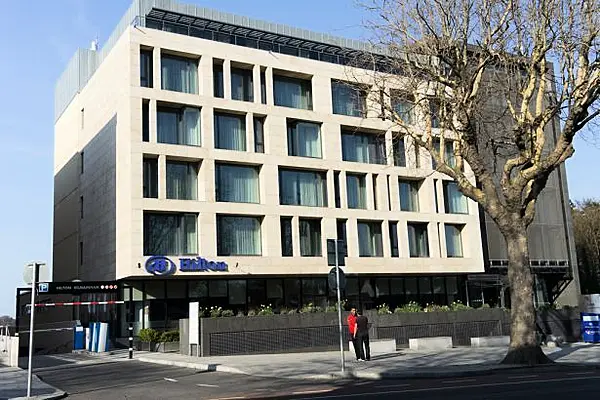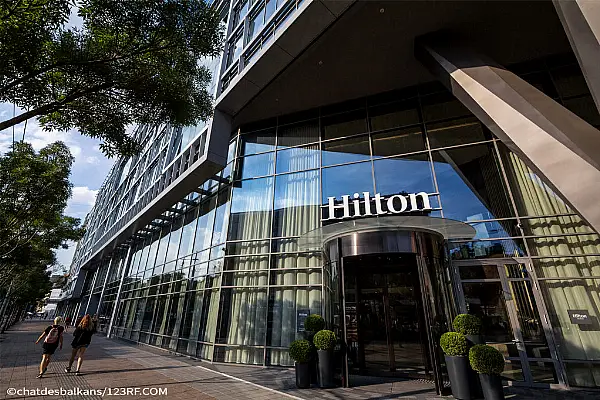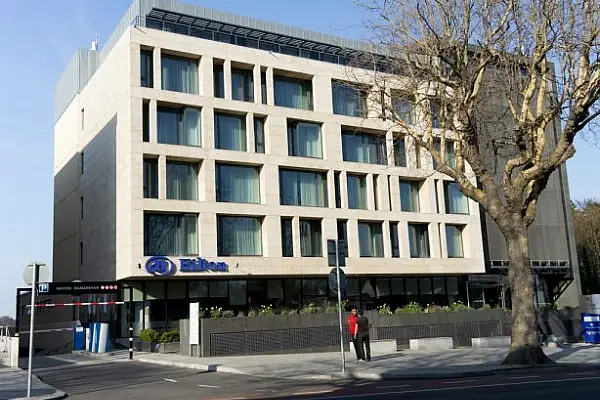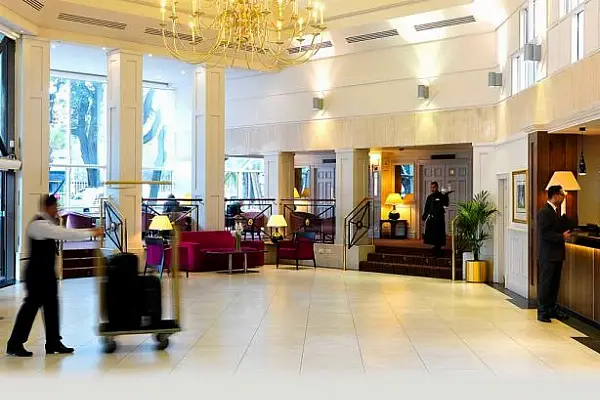Hilton Worldwide Holdings's newest big investor has solved one problem and may cause another.
China’s HNA Group bought 25 percent of Hilton from Blackstone Group Lin March, helping to ease an overhang on the stock because of its heavy ownership by one company that planned to sell its shares. S
Since Hilton's 2013 initial public offering, the Blackstone stake and the hotel operator’s debt load contributed to its shares lagging behind that of its chief rival, Marriott International, even as Hilton Chief Executive Officer Christopher Nassetta increased the company’s room count by more than a third. Hilton added 13,400 net rooms in the second quarter, it said in its earnings statement for that period Wednesday.
Hilton’s January spinoffs of its real estate and timeshare business came as China moved to clamp down on financial risk-taking. HNA, which has made more than $40 billion of foreign acquisitions, including stakes in Hilton and Deutsche Bank, faces growing regulatory scrutiny that threatens to scare off bond investors and raise its financing costs. If the Chinese government forces HNA to pay down debt as part of a broader crackdown on corporate leverage, the company may be required to liquidate some of its shareholdings.
“One has to be attentive to this and realise there could be a block that hits the market,” said Samuel Lieber, CEO of Alpine Woods Capital Investors LLC, which manages more than $3.8 billion, including Hilton and Marriott shares. HNA can’t sell the Hilton stake for two years without certain conditions, including Hilton board approval. “That tells you that it’s going to be an orderly transition, if it even happens.”
Hilton declined to comment on HNA’s shares in the company. HNA didn’t immediately respond to an emailed request for comment sent outside regular business hours in Beijing.
Shares Up
So far, HNA is in the money with its investment in Hilton, whose stock is up 13 per cent this year through yesterday. The lodging firm said on Wednesday that second-quarter earnings from continuing operations and before special items rose to 51 cents a share, compared with the 47 to 51 cents it forecast in May. It was 40 cents a year earlier.
Worldwide revenue per available room, an industry measure of demand, rose 1.8 percent in currency-neutral terms after rising 3 percent in the first quarter.
Hilton shares have underperformed those of Marriott, which became the world’s biggest hotel operator in September with its acquisition of Starwood Hotels & Resorts Worldwide. The deal gave Marriott a bigger presence in lifestyle and luxury hotels and a cohort of loyal guests. Marriott, which sold the Westin Maui in March for about $317 million, has about 15 properties left to sell as part of its strategy of focusing on management and franchise revenue.
‘Same Fundamentals’
“With Marriott, you have the exact same fundamentals but the kicker is you have upside from Starwood integration and asset sales,” said Michael Bellisario, an analyst at Robert W. Baird & Co. “That’s why people are still more positive toward Marriott.”
China’s surge of outbound tourism helped drive HNA’s shopping spree for overseas travel-related businesses. At the same time, China is a key expansion market for U.S. hotel operators, and HNA could help Hilton grow in the region. Hilton has more than 230 hotels in its greater China pipeline, in addition to 100 already open in the area.
Harry Curtis, an analyst at Instinet, said in a research note Tuesday that it’s unlikely HNA will need to sell its Hilton-related holdings. Because the Chinese government seeks stability, “we doubt it would take any destabilising action that could be viewed as an embarrassment to Chinese companies that have been supported by state-owned banks,” he said.
News by Bloomberg - edited by Hospitality Ireland









